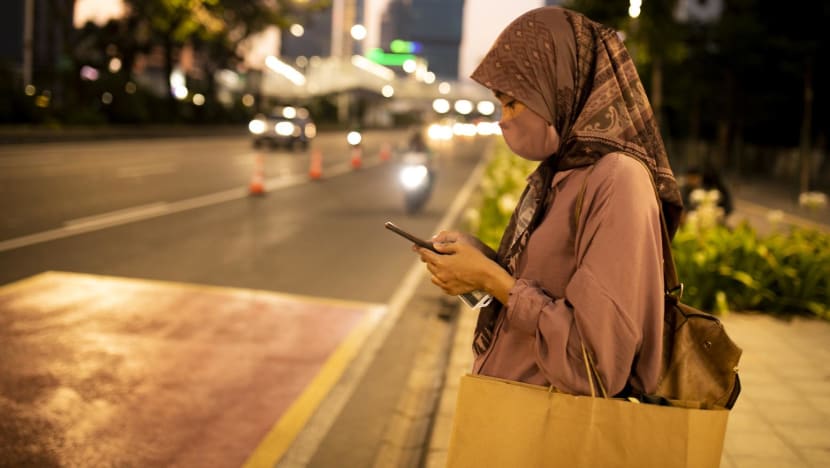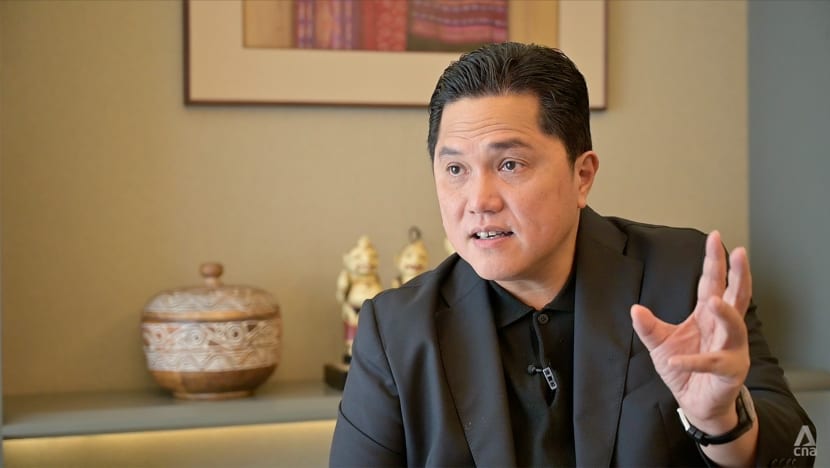Indonesian ministry pilots four-day work week to test impact on productivity, well-being
Employees of the Ministry of State-owned Enterprises may apply to work four days a week every fortnight. It is unclear if other government ministries will follow suit.

JAKARTA: Indonesia's Ministry of State-owned Enterprises has begun piloting four-day work weeks to improve the well-being of its employees.
Called the Compressed Work Schedule, the programme began this week and will be piloted over the next two months, reported news outlet Kompas.
During the trial, the ministry’s employees may apply to work four days a week every fortnight. To qualify, they must work a minimum of 40 hours in four days, have measurable work output and have their supervisors approve their request.
The ministry’s secretary Rabin Indrajad Hattari said the trial aims to find out if four-day weeks increase the productivity of employees.
It will also look out for managers who are effective in managing teams under a four-day work system.
"The team may be working too hard, so the manager must be able to ensure that the team should have the opportunity to have a work-life balance, that's the point," Mr Rabin said as quoted by Kompas.
According to Mr Rabin, a survey conducted in January by the ministry on employees' stress levels found there was a need for better work-life balance.
"This is one of the programmes to improve the well-being of employees," Mr Rabin said.
The four-day work week was proposed by Minister of State-owned Enterprises Erick Thohir in March as a way to improve mental health among staff. According to him, 70 per cent of the country’s younger generation have mental health issues that affect productivity.
Mr Thohir said giving staff three days off does not mean that they can be lazy; the four-day week is simply an alternative they can opt for twice a month.
It is unclear if the trial will extend to other government ministries. With about 400 employees, the state-owned enterprises ministry is one of the smallest among Indonesia’s 34 ministries.
However, Mr Thohir said previously that state-owned enterprises can consider the option. Indonesia’s 41 state-owned enterprises hire about 1.6 million people.

Globally, more countries and companies have adopted four-day work weeks following the COVID-19 pandemic.
Countries with the arrangement include Germany, Belgium, the United Kingdom, Spain and Portugal, according to Euro News.
In Asia, several cities in Japan have begun to pilot four-day work weeks. The Japanese government has also introduced such a system, but for employees with particular responsibilities such as looking after children or another family member. The plan will be implemented in Japan for all employees in April 2025.
Most firms in Indonesia that have adopted four-day weeks are startups – Sharia fintech peer-to-peer lender Alami, e-commerce payments platform Bolt and the fundraising platform Kickstarter, for instance.
Dr Eko Sakapurnama, a human resource management strategist and lecturer at the University of Indonesia’s faculty of administrative sciences, said compressed work schedules may provide benefits such as reducing stress, improving mental health and increasing job satisfaction.
For it to be a success, however, companies should meet criteria such as having a strong work culture and commitment, measurable performance measurement and organisational readiness and maturity, wrote Dr Eko on the university’s website.
Besides four-day weeks, other flexible work arrangements include allowing employees to work from home.















